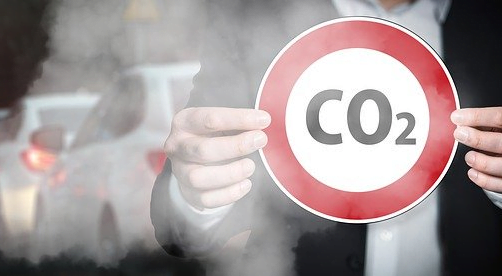Clean Energy Ministerial (CEM) – Industrial Deep Decarbonization Initiative (IDDI)
Context:
India along with Govt. of United Kingdom launched new workstream to promote industrial energy efficiency under the Clean Energy Ministerial’s (CEM) – Industrial Deep Decarbonization Initiative (IDDI) at the 12th Chief Energy Ministerial (CEM).
Key Highlights:
- The Twelfth Clean Energy Ministerial (CEM12), hosted by Chile
- The theme of CEM12 was “Ambition into Action– Turning a Year of Ambition into a Decade of Delivery”.
- It determine the medium and long-term role of clean energy in supporting the economic recovery from the COVID-19 pandemic, building momentum towards the commitment to cut emissions ahead of COP26 taking place in November 2021, and continuing the shift towards cleaner economies, raising ambition and accelerating clean energy transitions.
- India along with Govt. of United Kingdom launched new workstream to promote industrial energy efficiency under the Clean Energy Ministerial’s (CEM) – Industrial Deep Decarbonization Initiative (IDDI) co-ordinated by UNIDO
- The 12th CEM is ongoing from May 31st and will continue till 6th June 2021.
- The IDDI initiative has been supported by Germany and Canada, with more countries expected to join soon
- The objective is to infuse green technologies and stimulate demand for low-carbon industrial material
- The commitment hinges on effective deployment of low carbon technologies in Energy Intensive Sectors like Iron & Steel, Cement and Petrochemicals.
- India is committed to cut emissions intensity per unit of GDP by 33 to 35% by 2030 (stated in Nationally Determined Contributions).
About Clean Energy Ministerial (CEM)
- It was established in December 2009 at the UN’s Framework Convention on Climate Change conference of parties in Copenhagen.
- The Framework for the Clean Energy Ministerial, adopted at the seventh Clean Energy Ministerial in 2016, defines the CEM governance structure and outlines the mission statement, objectives, membership, and guiding principles.
- 29 countries are part of CEM, India is also a member country.
- The CEM11 was hosted by the Kingdom of Saudi Arabia in 2020.
Purpose:
The Clean Energy Ministerial (CEM) is a high-level global forum to promote policies and programs that advance clean energy technology, to share lessons learned and best practices, and to encourage the transition to a global clean energy economy.
Focus Areas
The CEM is focused on three global climate and energy policy goals:
- Improve energy efficiency worldwide
- Enhance clean energy supply
- Expand clean energy access
Key Roles
- Bringing Together the World’s Key Clean Energy Market Leaders
- Improving Policy and Expanding Deployment of Clean Energy Technologies
- Distributing and Fostering Clean Energy Leadership around the World
- Filling a Gap in the International Clean Energy Conversation
- Engaging Key Private-Sector Partners
About Industrial Deep Decarbonization Initiative (IDDI):
- IDDI is an initiative of CEM.
- It is a global coalition of public and private organisations who are working to stimulate demand for low carbon industrial materials.
- In collaboration with national governments, IDDI works to standardise carbon assessments, establish ambitious public and private sector procurement targets, incentivise investment into low-carbon product development and design industry guidelines.
- Coordinated by UNIDO, the IDDI is co-led by the UK and India and current members include Germany and Canada.
Mission
- To give well-designed policy packages
- IDDI’s mission is to facilitate the process, address the missing policy gaps and ultimately stimulate a market for decarbonised industrial materials including steel and cement.
Goals:
- Encouraging governments and the private sector to buy low carbon steel and cement.
- Sourcing and sharing data for common standards and targets.
Key activities and outputs
Making these programme goals a reality requires a number of complementary efforts and global outputs, which will be completed within a three year timeframe.
- A standard environmental reporting mechanism for both the cement and steel industry, providing a consistent communication framework for organizational accountability.
- A standard evaluation process and tools for project bids which incentivize and reward public work contractors on their commitment to source decarbonised building materials.
- Consistent minimum standards for low-carbon steel and cement products to encourage best production and manufacturing practice.
- Procurement guidelines for government agencies detailing how to set environmental project targets and incentivise contractors to source and use low-carbon steel and cement products.
- The launch of a free or low-cost certification service, enabling cement and steel producers to demonstrate their commitment to the decarbonised production of steel and cement while simultaneously accelerating global demand for certified low-carbon steel and cement.
- Publicly available data, research and tools for industry and governments to set targets, establish industry wide definitions of key sustainable products, improve production processes and benchmark best practice between organizations and industries.
- Industrial deep decarbonisation training and knowledge sharing to ensure that all cement and steel manufacturers have access to the information required to participate in the global race to net zero.
- A global 2050 vision for the decarbonisation of the steel and cement industries with ambitious targets informed by collective stakeholder input.
United Nations Development Industrial Organization
About:
- UNIDO is the specialized agency of the United Nations that promotes industrial development for poverty reduction, inclusive globalization and environmental sustainability.
- Headquarters: Vienna, Austria.
- Members:
- There are 170 Member countries as of 1st April 2019.
- India is also a member country.
- Discussion:
- Members regularly discuss and decide UNIDO’s guiding principles and policies in the sessions of the Policy Making Organs.
- Mission:
- The mission of UNIDO, as described in the Lima Declaration adopted at the fifteenth session of the UNIDO General Conference in 2013, is to promote and accelerate inclusive and sustainable industrial development (ISID) in Member States.
- Mandate:
- UNIDO’s mandate is fully recognized in SDG-9, which calls to “Build resilient infrastructure, promote inclusive and sustainable industrialization and foster innovation”.
Industrial Deep Decarbonization Initiative
Clean Energy Ministerial (CEM)
United Nations Development Industrial Organization
Source: PIB
Discover more from Simplified UPSC
Subscribe to get the latest posts sent to your email.



